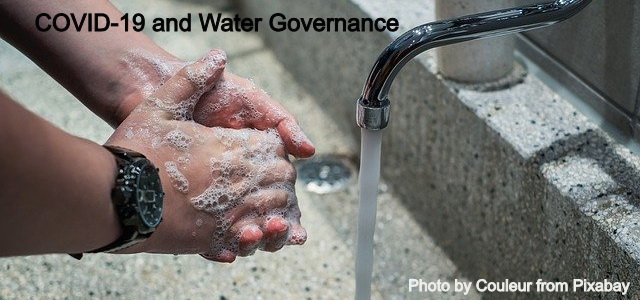Coronavirus disease 2019 (COVID-19) that occurs in many parts of the world has put a setback to the progress of achieving the Agenda 2030 Sustainable Development Goals.
the development. At present, all 212 Countries and Territories that have reported COVID-19 cases are focusing on moving towards finding solutions to end COVID-19. At the same time, the government and businesses also thinking about post-epidemics and looking for ways to rehabilitate and reconstructing development affected by the plague even better, or commonly known as ‘build back better’.
Build Back Better became the first topic from a series of discussions in 2020 between the International Association for Public Participation (IAP2) Indonesia with the Global Water Partnership South East Asia (GWP-SEA). As part of the disaster recovery, the approach emphasis strengthening the governance structure. Since the spread of the virus is closely related to water and sanitation to reduce the transmission, water governance in this pandemic situation is greatly significant. The call for clean and healthy living behaviors such as washing hands frequently and the use of disinfectants causes the consumption of water will multiply. While countries with strong water management will encounter a slight challenge to supply adequate water to the community, the situation significantly will be different for countries that currently trying to achieve good water governance, especially those that have a lack of water resources. The example of this case is a country like Yemen which 50% of the population struggle daily to find or buy enough clean water to drink or to grow food. Hence, there is a growing need to develop a protocol that regulates public health during disasters (both natural and non-natural) with water governance as one of its elements.
Responding to this situation, GWP-SEA plans to develop a position paper to convey a message on the importance of water governance during the COVID-19 pandemic in Indonesia. Several questions that might need to be answered by the paper are: what should be done during post-epidemics? How can the country's build back better is planned to catch up on economic development? Strengthened the foundation of the public health system which incorporates water governance and readiness in dealing with an emergency (natural and non-natural disasters). The system starts with regulations (rules of the game) to what kind of technology needs to be prepared (equipment). The system is needed as mitigation so the government can undertake an appropriate measure when a similar situation repeats if in the future. Another important foundation is social security and an efficient emergency response system like those of developed countries. GWP-SEA also highlighted the importance of a position paper by looking at the current trends that the public prefers real action in addition to the development of communication products such as an article as a means to educate the public through mass media.
In support of the initiative, IAP2 Indonesia also found an opportunity from the position paper put forward by GWP-SEA in mainstreaming public participation in water governance. Besides, collaborate in developing the paper will strengthen the partnership between two. The public participation pointed out by IAP2 Indonesia will refer to the Five Spectrums of Public Participation, namely Inform, Consult, Involvement, Collaborate, and Empowerment (Empowering). The adoption of these spectra is expected to be a prelude for the improvement of water governance and understanding of the importance of public participation by encouraging a genuine public engagement.
For the very first step of public engagement in 2020, GWP-SEA and IAP2 Indonesia will initiate a webinar as this strategy can also allow multi-stakeholders participation under the COVID-19 pandemic situation without the need for physical meetings. Another further collaboration for engaging civil society is with the launch of Global Campaign “Year of Participation”. IAP2 Indonesia hopes that this cooperation with GWP-SEA soon will be launched since the support letter from the Ministry of National Development Planning (BAPPENAS), and the Ministry of Foreign Affairs Republic of Indonesia has been received. ***IS, AW
